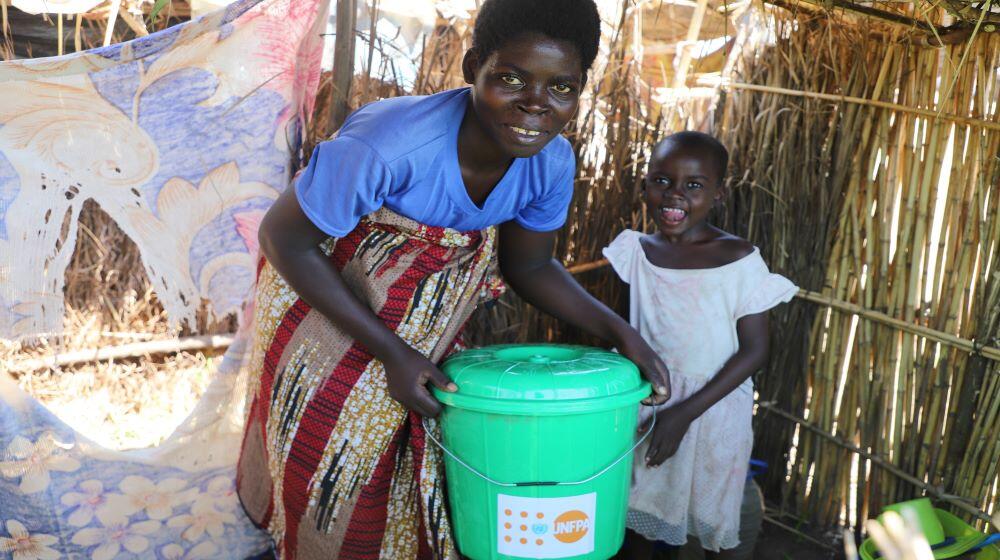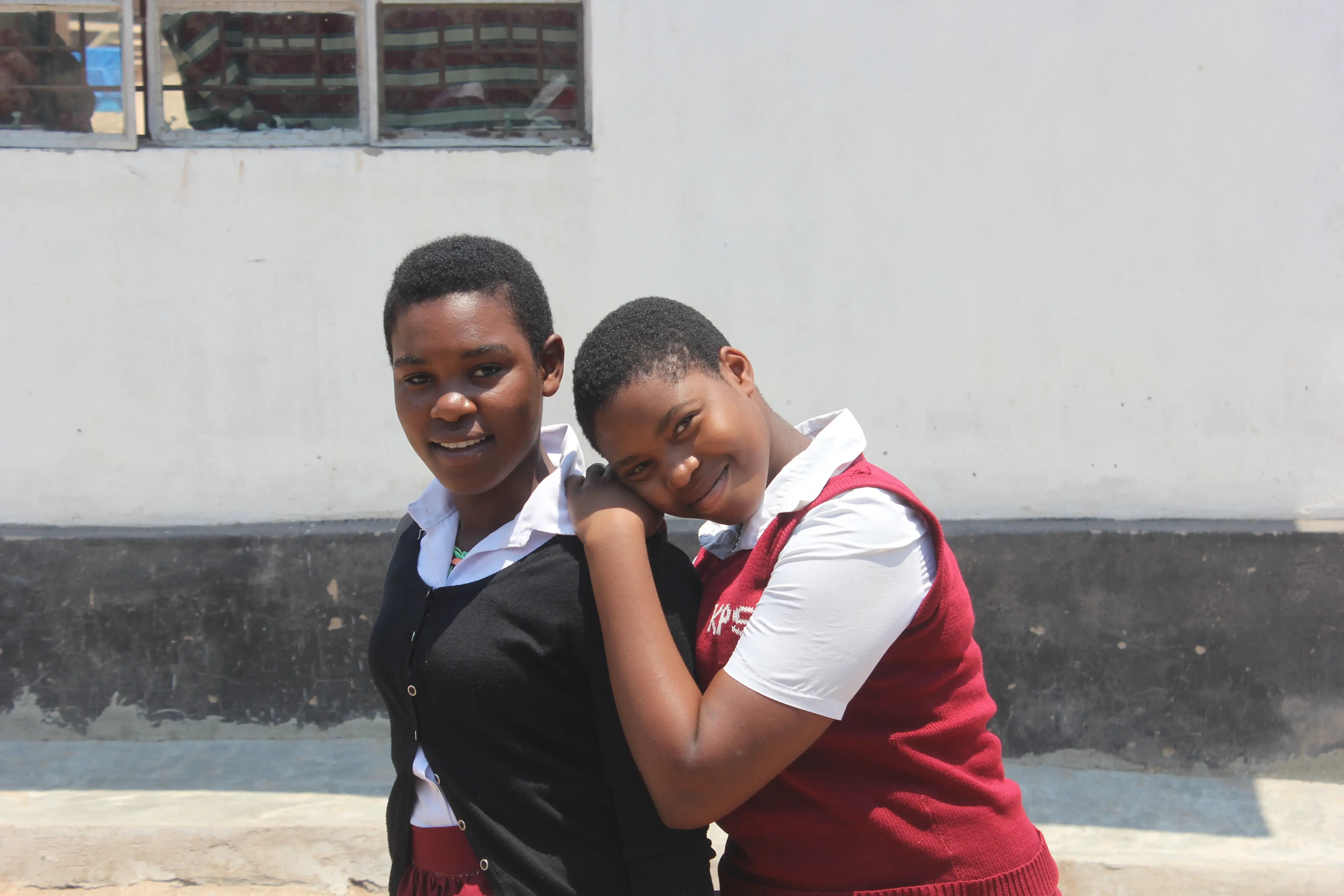When Tropical storm Ana hit Nsanje district on the night of 24 January, Marita Wyson was about to serve her family the evening meal. The heavy downpours and violent winds brought fear to the family. In fact, that night, no one touched their food.
Barely minutes after the storm began, water started seeping through the walls of Marita’s hut.
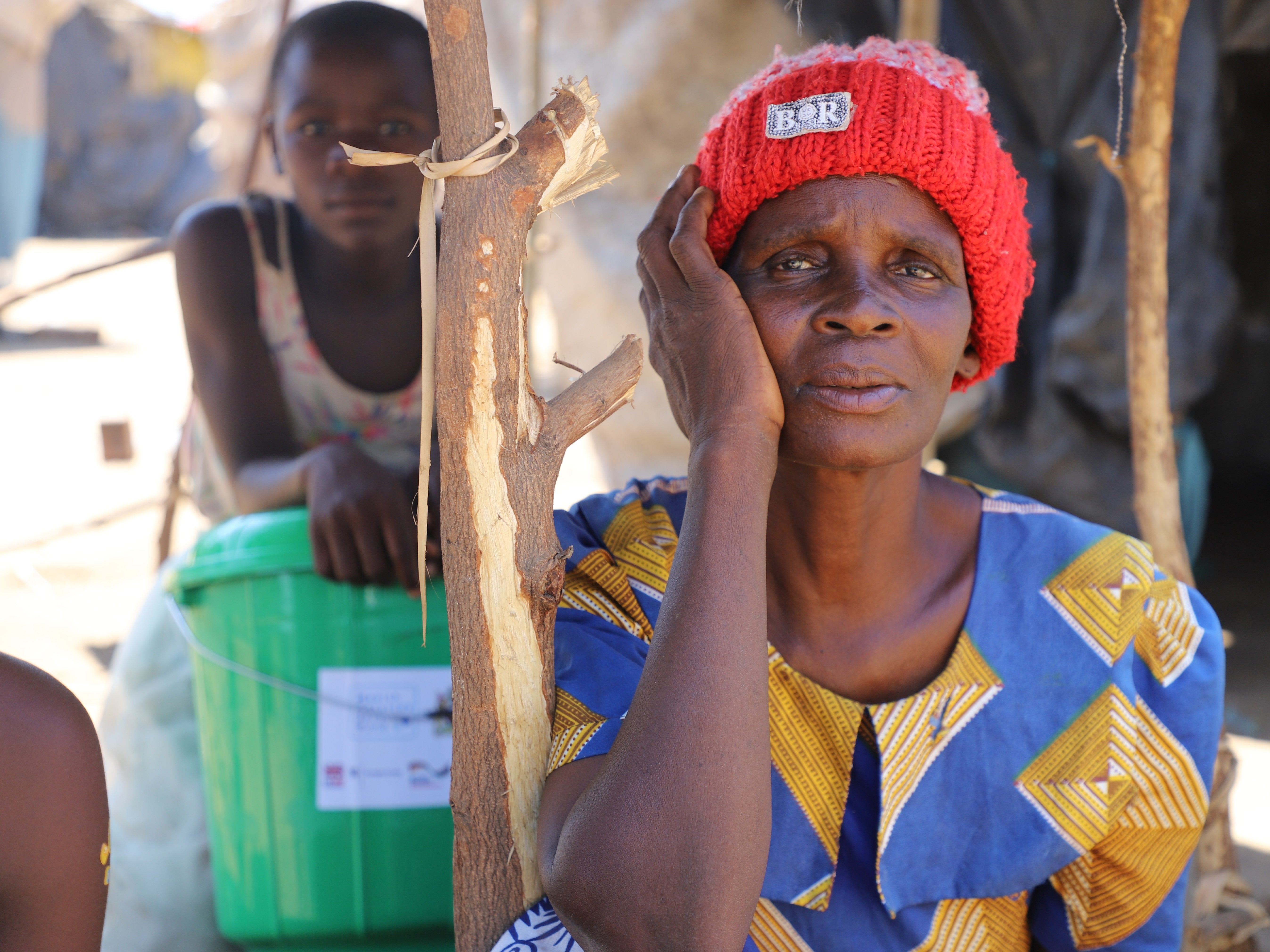
“When I peered outside, I saw that the water levels were rising,” says 54-year-old Marita from Hapalikusala village in the district. “I knew that anytime our village would be flooded.”
Floods cause destruction and despair
Marita didn’t want to leave anything to chance. The same evening, she moved her family to Ntole camp. After Marita and her family had left the village, the floods intensified sweeping away their house.
“When we arrived at Ntole, there was nothing. Not even toilets,” says Marita, a mother of five. “We didn’t even have a place to sleep but we took comfort in the fact that we were alive.”
Marita’s eldest child is 22 while the youngest is 12 years old. In between, she has three teenage girls. Her husband died five years ago and she has had to fend for the family alone.
“I have been struggling to get food to feed my family,” she says, adding, “And the most difficult part is that two of my daughters are pregnant. Although health staff visits the camp during the day to check on pregnant women, still it could have been better if we were home.”
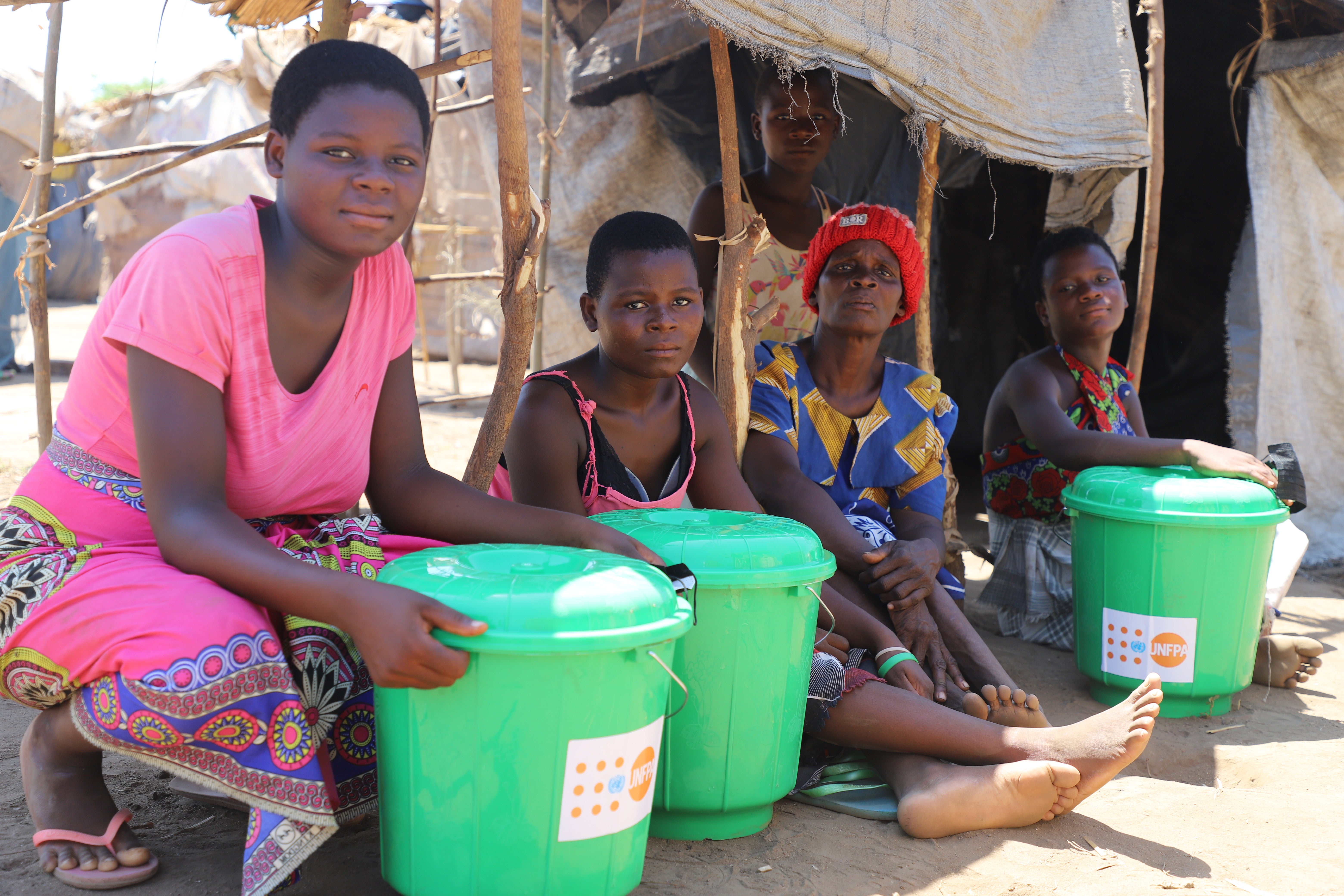
The two daughters, Juliet (18) and Ruth (15) dropped out of school when their father passed on three years ago. Marita says she couldn’t manage to pay for their school fees.
“It’s difficult to monitor movements of young girls especially when they are teenagers,” she says. “I spend most of my time away from home looking for work, since I am the bread winner. And because of my absence, the girls didn’t have better parental guidance and that’s why they are pregnant.”
According to the latest Interagency Assessment (IAA) report, 16,612 households in Nsanje have been affected by floods representing a population of 83,060 displaced and living in camps. Approximately, 1505 pregnant women have been affected by the floods, and 3860 lactating women.
Ntole camp is hosting displaced people from Malawi, and neighbouring Mozambique. At the camp, there are about 247 Malawian households and 163 Mozambique households, putting the total population at 1865 people. Ntole has also registered 32 pregnant women from the Malawian side of the camp and 30 from the Mozambican side.
Juliet and Ruth are among the 32 pregnant from the Malawi side. While Juliet is five months pregnant, Ruth is due to deliver any time.
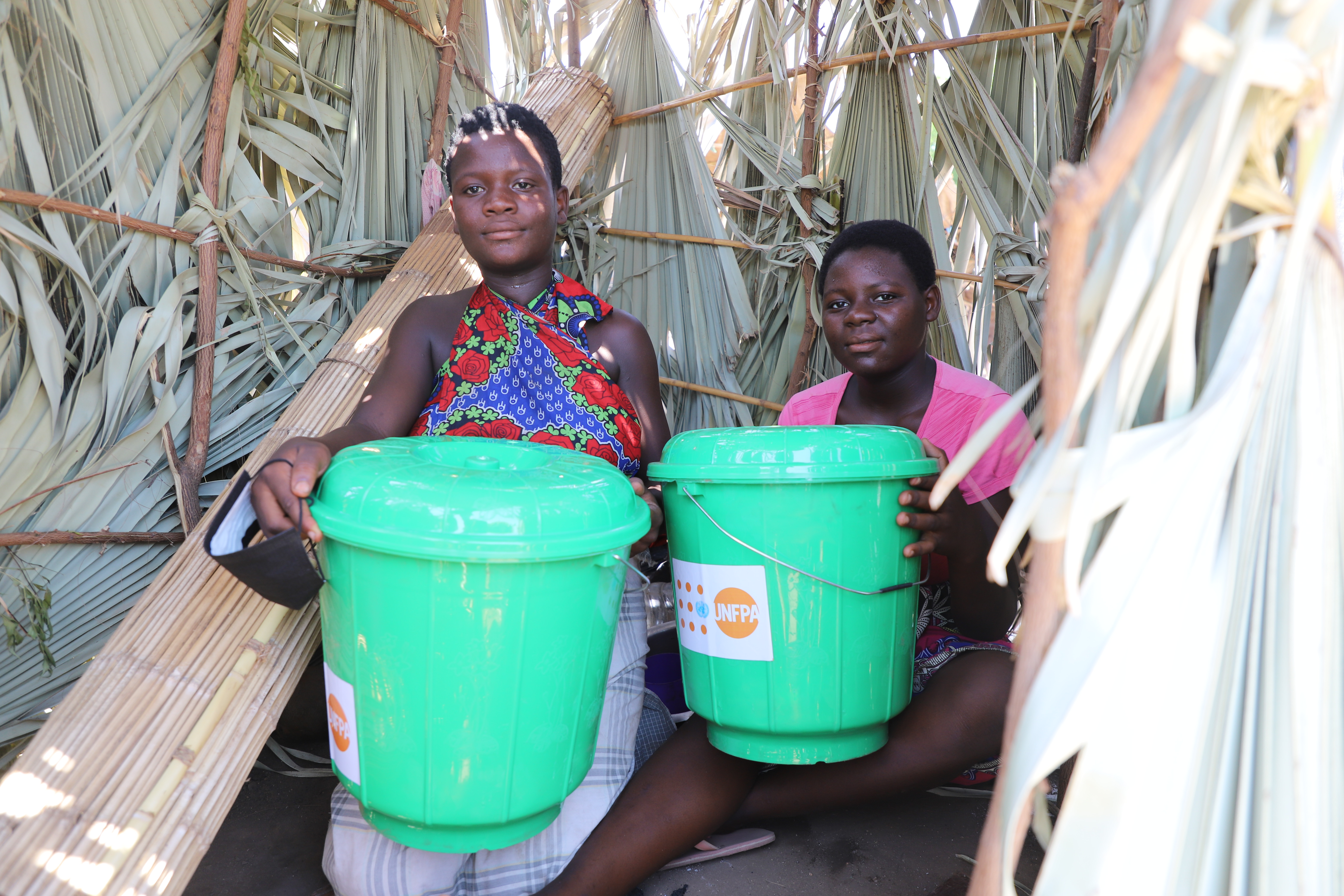
“I wish I was back home,” says Ruth. “It will be difficult for me to deliver in this kind of environment. I have nothing to clothe the baby as everything was washed away by the floods.”
UNFPA’s response
After the floods hit Nsanje, electricity infrastructure was damaged. This affected the main referral hospital, Nsanje District Hospital, where residents of Ntole camp access health services. The two backup generators at the hospital were also damaged.
To save the lives of expectant women, mothers and their newborns, UNFPA dispatched a technician to repair the generators. Under the Umoyo Wathu programme funded by the UK’s Foreign Commonwealth and Development Office (FCDO), UNFPA will also support the hospital with a generator for the maternity ward.
Dignity kits for better hygiene
With funding from KFW, UNFPA also distributed 850 dignity kits in three camps in Nsanje. At Ntole camp, Marita’s girls were part of the beneficiaries who received the dignity kits.
“We have been receiving some food items here and there but this is the first time receiving soap, toothpaste and some sanitary pads,” says Marita. “I was very worried about the health of Juliet and Ruth, since their condition require that they maintain proper hygiene.
“This package will go a long way to help us stay clean. As a woman, I know the importance of good hygiene. And even my girls are happy. I am very thankful to those who supported us with this package.”
Joseph Scott, Communications Analyst

